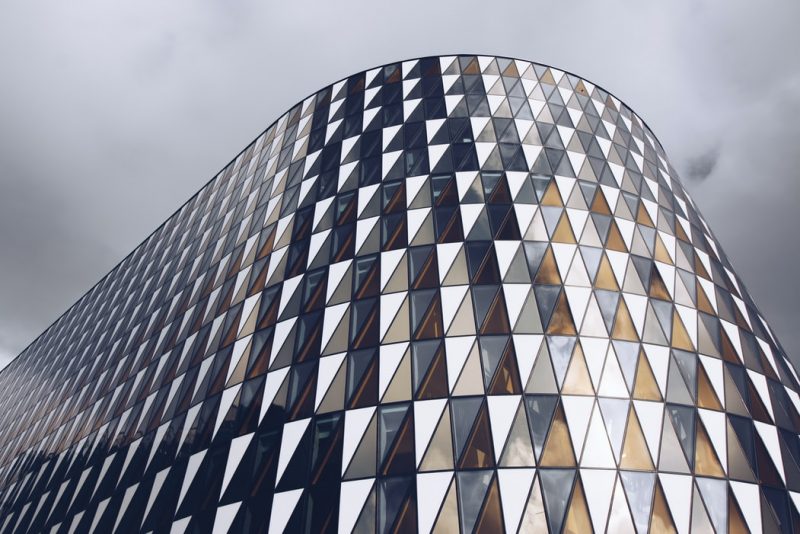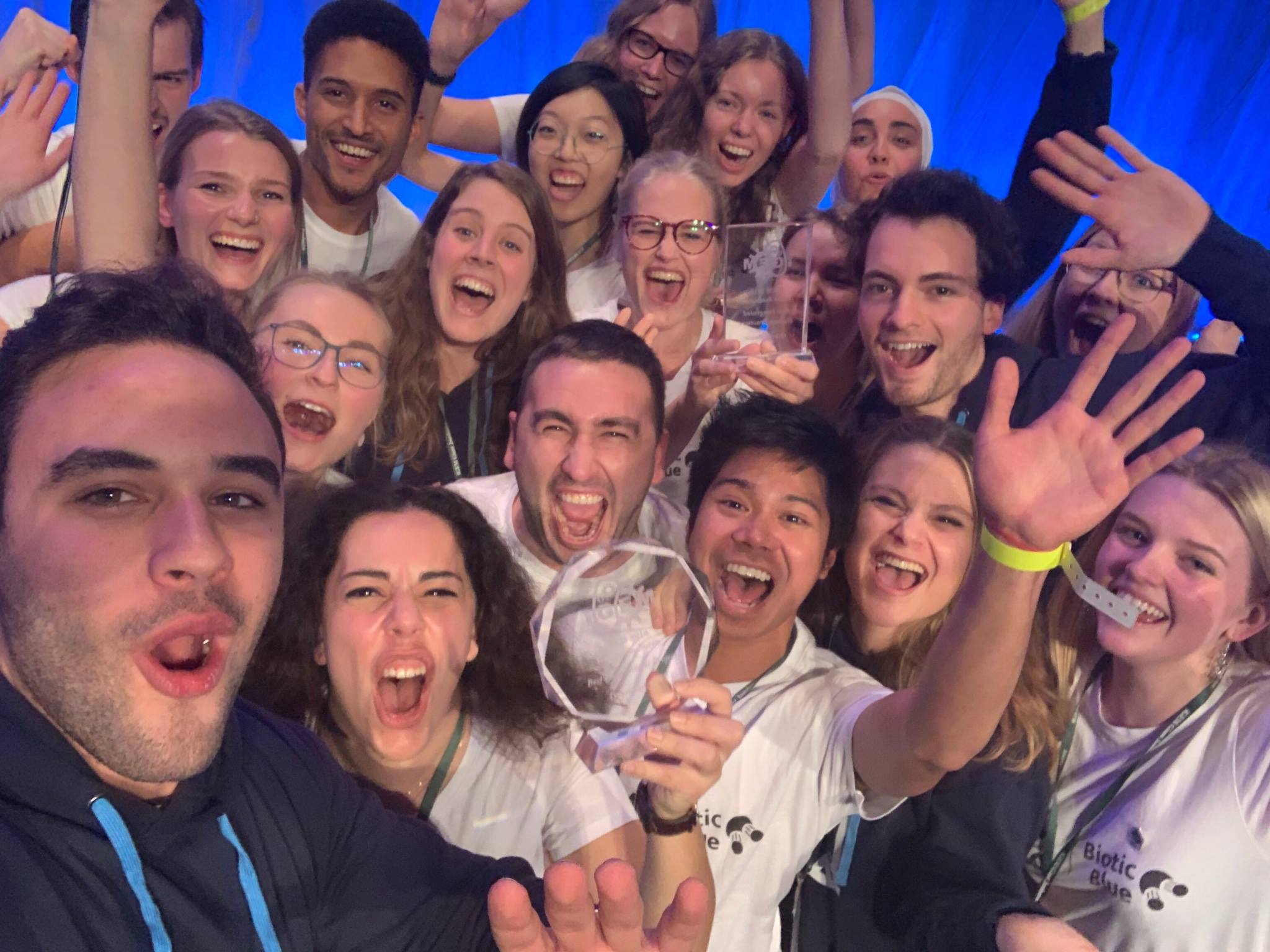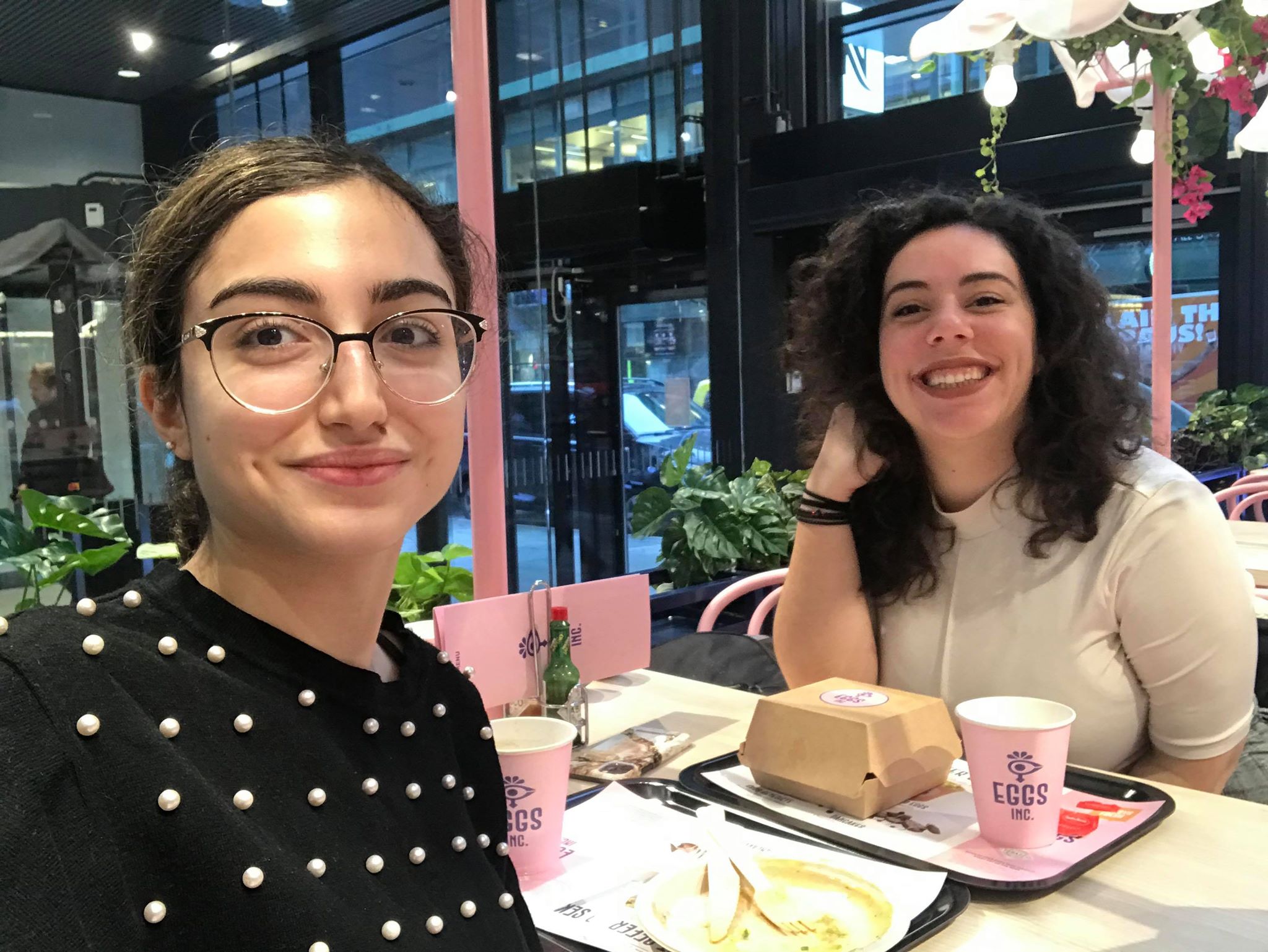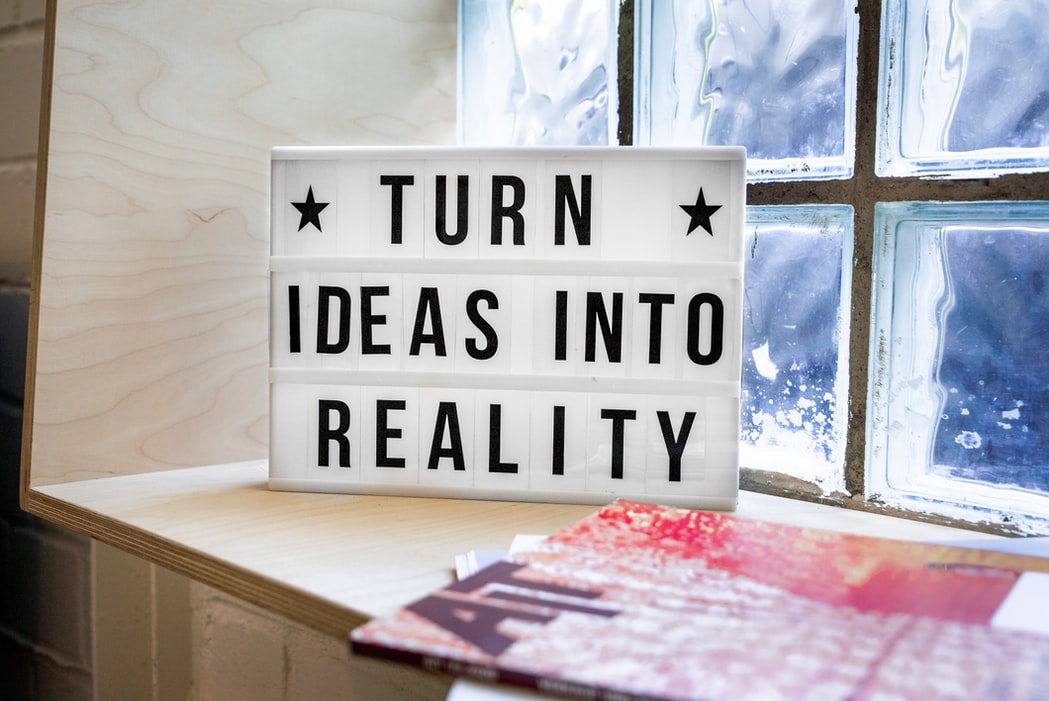
Interviewing an MSc in Biomedicine alumni: Startup, industry, or academia?
Now is the best time to explore different opportunities! You graduated, and you’re starting the process of closing a chapter of your life. Some are taking it slowly while others already set their goals for a position in mind. I was discussing it with friends on the advantage of sharing previous Master’s in Biomedicine alumni stories so students can gain more career insights. This blog is a first of its kind, and I hope I will do another interview in the coming weeks.

Best Environmental Project and Best Human Integration 2018 ? ? ? Photo credits: iGEM Stockholm facebook page
I caught up with Stamatina Rentouli; also everyone calls her Matina. We chose a cosy breakfast place in the central busy Stockholm. She comes from the sunny part of Europe ➡️ GREECE☀️!! From the moment you meet her, you sense her cheerful and positive energy. She finished her Master’s in Biomedicine degree in 2019. During her studies, she was very active at KI, amongst which participating at Medicinska Föreningen (medical student union) activities and innovative events. One of her favourite moments at KI was when she competed for the iGEM Stockholm team, and they accomplished several milestones with their project! ?

Matina (right)
Walk me through your career journey to where you are today…
I was first working part-time during my second-year master’s studies at an Anti-Doping company in Stockholm, and I continued working with them after graduation. I also started working with sales at a New York-based neuroscience startup, Neurostorm. We were identifying the European market and other Medtech startups.
“Neuroscientists and artists working together make up for a creative environment.” – Matina
After a while, my role changed more into business development (XR innovation specialist). I started looking more into how the company was built and its projects Together with the team, we focused on one project, a Parkinson’s Disease tool. We transformed the project into a product – The cofounders developed an algorithm and plugged it into a VR headset that helps in stabilising the tremor. People wearing the headset experience steady hands in VR, but in reality, their hands are shaking. Neuroscientists and artists working together make up a creative environment in the startup. Currently, we test it on a group of patients that we’re in close contact with.

Do you have any job-seeking tips for recent graduates?
When I was first applying for positions, I felt lost. We need enough support on how to apply for jobs. You don’t understand specific business terms or if you see a job advertisment the title can´t relate to academia (For ex: Cheif Medical Officer). You have to be not afraid when applying even if you think you are not qualified or if the company is on the other side of the world. Showcase how your experiences can translate into the industry.
“Karolinska Institutet is the best place to explore innovation.” – Matina
You have been working in the lab, so you gained practical experience and scientific knowledge. Medtech and pharma industry will be lucky to have someone with this knowledge. Use your student experience – show that you developed yourself through working/volunteering at different events. Karolinska Institutet is the best place to explore innovation.
How is it to work for the industry over a PhD after your MSc?
You deal with different aspects of science in companies – business development, applying for grants and funding, implementing your scientific ideas and have a more solution-based approach. Having worked in the industry, academia, and a startup, you realize that although there are some differences between each other, there is a common dominator – you innovate to improve patient lives. I believe a startup, is the fastest way to make a change. Hard to navigate a more rapid change in a company, with more established lines of authority. While in academia, investigating treatments in the lab (For ex: immunotherapy) takes a lot more time to reach the patients. I like working in the life sciences; that way, I continue to do something that matters. Also, I have to say that working in a startup or small company is an excellent way of making friends. I had a similar experience when I was also working at iGEM, where I made friends for life.
I felt that I did not want to do a PhD right after my graduation. I know most of my biomedicine classmates are continuing for a PhD. Some professors and colleagues I met believe that it’s good to have some industry experience before applying for a PhD. You get a different set of skills before you dive into the science again. After all, you become more of a specialist in a field when graduating with a PhD.
What’s the next step for you?
Currently, I enjoy working with the industry, but I also miss working in the lab. However, I am still thinking whether to apply for a PhD or not. I love science, and I want to be involved in it, I get excited when my friends talk about their research and show me their posters for conferences. However, I am not sure if, PhD, a strictly academic role, is the best way to serve science in our society.
Are you happy that you stayed in Stockholm?
I love Stockholm. I came here one year before my MSc for an Erasmus (12 months). After three years in Stockholm, there are things I miss from my home back in Greece, but Stockholm became my new home. It has different qualities that I like. It’s like best of both worlds. You build networks, and it’s an excellent environment, and I admire how independent people are.
You’ve reached the end of this interview! I hope it was insightful and gave you some inspiration for your career goals! Take care, and keep an eye out for the next blog! Xx
–Sara A.

1 comments